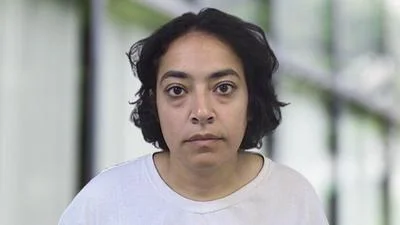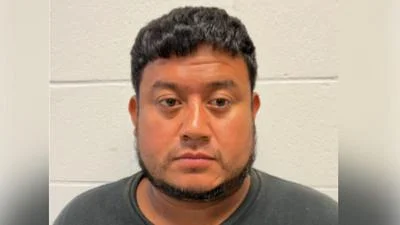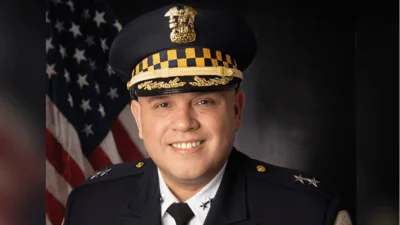State Representative Kambium Buckner | Illinois General Assembly
State Representative Kambium Buckner | Illinois General Assembly
According to the Illinois General Assembly site, the legislature summarized the bill's official text as follows: "Amends the Illinois Criminal Justice Information Act and the Uniform Crime Reporting Act. Provides that, beginning January 1, 2026, the Illinois State Police shall submit to the Illinois Criminal Justice Information Authority, or provide to the Authority through a web-based portal, specified information concerning homicides on a quarterly basis. Requires the Authority to study and compile the information and, on a quarterly basis, publish the information on the Authority's public website in a form determined by the Authority."
The following is our breakdown, based on the actual bill text, and may include interpretation to clarify its provisions.
In essence, this bill mandates the Illinois Criminal Justice Information Authority to study, compile, and publish data related to homicides and certain aggravated assaults with firearms, starting July 1, 2026. The compilation is to occur every four months, beginning Sept. 1, 2026, utilizing data from the Illinois State Police under the Uniform Crime Reporting Act. The published information will include the number of homicides and aggravated assaults with firearms, the number of such crimes cleared by arrest, and details on cases closed for other reasons, such as the perpetrator's death or prosecution declination. The Illinois State Police will serve as the central repository for crime statistics and is tasked with ensuring data submission and access via web-based methods, making it available for publication by the Authority as required under amended sections of the Illinois Criminal Justice Information Act and the Uniform Crime Reporting Act.
Kam Buckner has proposed another six bills since the beginning of the 104th session.
Buckner graduated from the University of Illinois Urbana-Champaign with a BA and again from DePaul University College of Law with a JD.
Kam Buckner is currently serving in the Illinois State House, representing the state's 26th House District. He replaced previous state representative Christian Mitchell in 2019.
Bills in Illinois follow a multi-step legislative process, beginning with introduction in either the House or Senate, followed by committee review, floor debates, and votes in both chambers before reaching the governor for approval or veto. The General Assembly operates on a biennial schedule, and while typically thousands of bills are introduced each session, only a fraction successfully pass through the process to become law.
You can read more about bills and other measures here.
| Bill Number | Date Introduced | Short Description |
|---|---|---|
| HB1710 | 01/24/2025 | Amends the Illinois Criminal Justice Information Act and the Uniform Crime Reporting Act. Provides that, beginning January 1, 2026, the Illinois State Police shall submit to the Illinois Criminal Justice Information Authority, or provide to the Authority through a web-based portal, specified information concerning homicides on a quarterly basis. Requires the Authority to study and compile the information and, on a quarterly basis, publish the information on the Authority's public website in a form determined by the Authority. |
| HB1708 | 01/24/2025 | Amends the Ballots Article of the Election Code. Provides that the governing body of a municipality may adopt, upon submission of a written statement by the municipality's election authority attesting to the administrative ability of the election authority to administer an election using a ranked ballot to the municipality's governing body, an ordinance requiring a ranked vote by mail ballot for municipal and township office candidates to be voted on in the consolidated election or consolidated primary election (rather than only the consolidated election). Provides that the governing body of a municipality may adopt an ordinance allowing any qualified voter to use a ranked vote by mail ballot for any municipal and township election. Sets forth provisions concerning ranked ballots for nonpartisan primary elections. Removes language providing that a ranked ballot shall be for use only by a qualified voter who either is a member of the United States military or will be outside of the United States on the consolidated primary election day and the consolidated election day. Effective January 1, 2026. |
| HB1709 | 01/24/2025 | Creates the Local Accessory Dwelling Unit Act. Defines terms. Provides that a unit of local government may not prohibit the building or usage of accessory dwelling units in the unit of local government. Provides that a unit of local government may provide reasonable regulations relating to the size and location of accessory dwelling units similar to other accessory structures unless a regulation would have the effect of prohibiting accessory dwelling units. Limits home rule powers. Effective immediately. |
| HB1611 | 01/23/2025 | Amends the Code of Criminal Procedure of 1963. Provides that a no-knock search warrant shall not be issued when the only offense alleged is possession of a controlled substance unless there is probable cause to believe that the controlled substance is for other than personal use. Provides that when an officer, having a warrant for the search of a dwelling, executes the search warrant, the officer shall: (1) execute the warrant between the hours of 9 a.m. and 7 p.m. unless the judge, for good cause, expressly authorizes execution at another time; (2) be readily identifiable as a law enforcement officer in uniform or wearing a visible law enforcement badge that clearly identifies the person as a law enforcement officer; (3) In counties of 90,000 or more inhabitants, be a member of a special weapons and tactics team or special response team, or another established team or unit trained and tasked with resolving high-risk situations and incidents, who has received appropriate training in the execution of arrest and search warrants authorizing entry without notice; (4) wear and activate a body-worn camera as required by the use of force in execution of a search warrant when entering a premises for the purpose of enforcing the law; (5) have a certified or licensed paramedic or emergency medical technician in proximity and available to provide medical assistance, if needed; (6) be prohibited from pointing firearms at individuals under 18 years old, unless there is clear and present danger to the officer or another person; and (7) knock and announce the officer's presence at a volume loud enough for the officer to reasonably believe the occupants inside can hear, allow a minimum of 30 seconds of time before entering given the size of the dwelling for someone to get to the door, and delay entry if the officer has reason to believe that someone is approaching the dwelling's entrance with the intent of voluntarily allowing the officer to enter the dwelling; except that this provision does not apply if the circumstances known to the officer at the time provide an objectively reasonable basis to believe that a no-knock entry or not waiting a reasonable amount of time is necessary because of an emergency threatening the life of or grave injury to a person, provided that the imminent danger is not created by the law enforcement officers executing the search. Makes other changes. |
| HB1612 | 01/23/2025 | Creates the Illinois Appliance Standards Act. Directs the Illinois Environmental Protection Agency to adopt minimum efficiency standards for covered products. Provides for testing, certification, and labeling of covered products. Contains provisions concerning enforcement of the Act's requirements. Provides for administrative rulemaking by the Agency. Makes findings. Defines terms. |
| HB1423 | 01/16/2025 | Appropriates $5,500,000 from the General Revenue Fund to the Department of Human Services for a grant to Laureus Sport for Good Foundation USA for program and operating expenses for youth-development based sports initiatives. Effective July 1, 2025. |
| HB1292 | 01/13/2025 | Amends the Workers' Compensation Act. Provides that post-traumatic stress disorder is to be rebuttably presumed to arise out of and to be causally connected to the hazards of employment of a person employed as a firefighter, emergency medical technician (EMT), emergency medical technician-intermediate (EMT-I), advanced emergency medical technician (A-EMT), or paramedic. |






 Alerts Sign-up
Alerts Sign-up